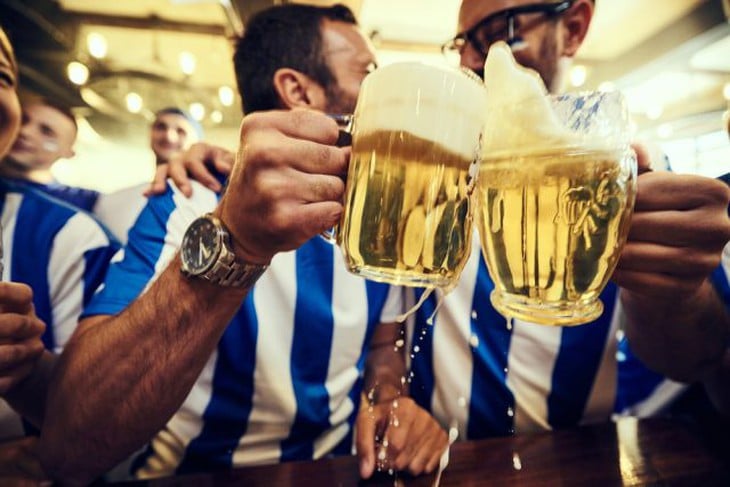
Football fans often find it hard to avoid drinking after the match - Photo: CN
Many doctors will give straightforward advice to stay away from drinking alcohol on sports days. Especially with football, a sport with a lot of collisions and high risk of injury.
Doctor CKII Do Huu Luong of Military Hospital 175 - a unit accompanying the Vietnam Workers and Civil Servants Football Tournament jointly organized by Tuoi Tre newspaper , Vietnam General Confederation of Labor , and Vietnam Football Federation, shared about this issue.
"Using alcohol before and after playing sports is a very dangerous problem. First of all, it affects the central nervous system coordination and reflexes, making our movements not standard.
Drinking alcohol also causes dehydration, electrolyte imbalance, and sleep disorders. To analyze fully, drinking alcohol will affect many important factors of the body such as the cardiovascular system, muscles...", said Dr. Do Huu Luong.
Many sports players are very conscious of avoiding alcohol. For example, in the Vietnam Workers and Civil Servants Football Tournament in recent years, many teams have strict regulations on drinking.
Mr. Thai Le Cuong - Deputy Head of Nghe An Trade Union Team when participating in the tournament in 2024 shared: "We are very concerned about nutrition and logistics care.
The team has a nutrition department that closely monitors and ensures that the players strictly adhere to nutritional regulations. One of them is to absolutely stay away from alcohol during the tournament."
But besides the general advice, the topic of "drinking and sports" also creates a lot of debate in the scientific community.
Many experts believe that there should be clear advice on spacing out drinking and playing sports. If drinking is allowed, how much should one drink? And it is necessary to clearly show sports players the harmful effects and risks that alcohol brings, once they apply it incorrectly.
Drinking before playing: huge risk, loss of form
If you drink before going to the field, the central nervous system will be inhibited by ethanol, causing slower reflexes, weaker coordination, and poorer balance...
Alcohol also has a diuretic effect, causing dehydration; it is preferentially metabolized in the liver, affecting energy reserves (glucose, glycogen) and the ability to use energy in muscles.
Research shows that "acute alcohol intoxication" reduces post-exercise hyperglycemia and slows the conversion of energy from fat during recovery.
An article from the NSCA (National Bodybuilding Association) highlights that alcohol reduces muscle protein synthesis (MPS) despite adequate protein intake.
When performance is impaired, you can become a source of injury to yourself and your teammates. ACSM also notes that alcohol can impair your heart, metabolism, and thermoregulation—all factors that affect performance.
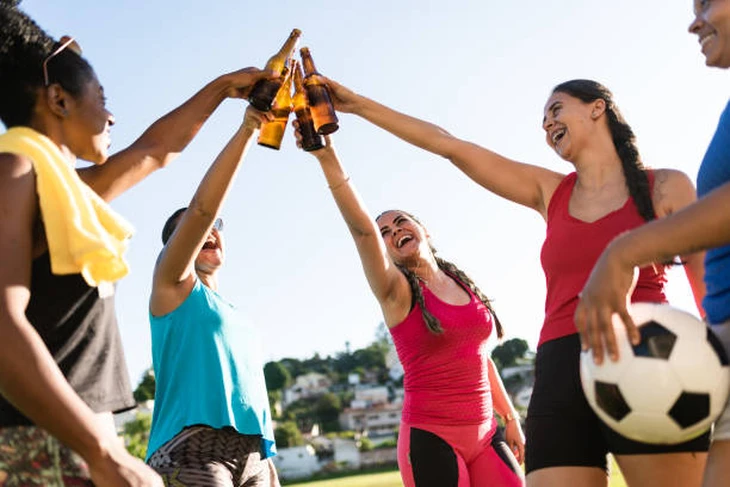
Beer and alcohol are not recommended for football players - Photo: CS
So is there an acceptable “pre-game dose”? Most guidelines and studies discourage alcohol consumption close to competition.
Even low doses can have an effect. The time it takes to “detox” alcohol depends on the amount consumed and the individual’s metabolic rate – it is generally estimated that the body eliminates about 0.10 – 0.15 ‰ of blood alcohol concentration per hour.
If you have been drinking to the point of high blood alcohol concentration, it is best to wait at least 6-8 hours or more to return to a “near clean” state before competing.
In short, drinking before a game is a high-risk, almost no-reward option - except in extremely mild cases, many hours before the game, and with players in exceptionally good physical condition.
Drinking after playing: difficult to recover, potential risks
This is the most common situation among workers and civil servants, from factories, enterprises to office environments. When going to the football field, it is inevitable to "socialize" a little at the drinking table.
From a recovery science perspective, drinking alcohol immediately after a match can slow down important recovery processes: muscle protein synthesis, glycogen regeneration, fluid-electrolyte balance, hormone regulation, neurological recovery – and if consumed in large amounts, the effects are greater.
A study by Parr et al. (2014) showed that when drinking alcohol after exercise (even with protein supplementation), muscle protein synthesis was significantly reduced - meaning alcohol inhibited the muscle's "anabolic" response.
Other meta-analyses have also highlighted that this reduction is dose-time dependent: the earlier and more you drink, the greater the inhibition. One study estimated that drinking alcohol after exercise can reduce recovery by up to 37% compared to not drinking.
Hormonal responses are also affected: alcohol can decrease testosterone, increase cortisol - this reduces the muscle-building response and supports muscle breakdown.
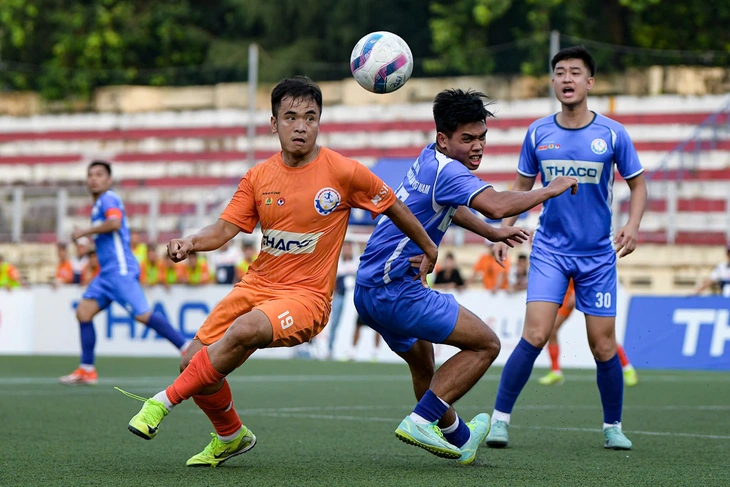
Many teams participating in the Workers' and Civil Servants' Football Tournament strictly adhere to the regulations of staying away from alcohol - Photo: NAM TRAN
Alcohol also disrupts water balance: it is a diuretic, leading to dehydration, making the recovery process requiring water and electrolyte replacement more difficult.
Furthermore, drinking alcohol after heavy physical exercise also alters the blood clotting system (haemostasis), increasing the risk of blood clots if there is damage to small blood vessels.
Sleep – which is an important time for nerve, hormone and rebalance recovery – is also severely affected by alcohol consumption: reduced REM sleep, increased nighttime awakenings, poor sleep quality. This further reduces recovery efficiency.
The “acceptable” case
Research from the NSCA also offers some relative advice for athletes who want to drink a little alcohol around their sports session.
Take at low doses - research suggests that if ≤ 0.5g ethanol/kg body mass then the effects on recovery and muscle may be smaller, negligible for many people.
Don't drink immediately after the game - wait at least 2-3 hours, prioritize eating, rehydrating, carbohydrates + protein, then if you still want to drink lightly.
Don't drink before a game - or if you do, wait long enough for your body to metabolize the alcohol to very low levels (6-8 hours or more depending on the dose).
Drink enough water with it, eat restorative foods before drinking, avoid drinking too close to bedtime.
Easy to understand conversion: from ethanol → beer/whisky
To know “how much is enough to drink”, we need to convert the amount of ethanol to common drinks:
A 330ml can of 5% alcohol beer contains about 13g of ethanol. A 30ml shot of 40% alcohol whisky contains about 9.5g of ethanol.
Let's say you weigh 70kg, if you drink 0.5g/kg → that's equivalent to 35g ethanol. 35g is equivalent to about 2.7 330ml cans of beer (5%), or about 3.7 30ml shots of whisky. If you weigh more or less, this will change.
Remember, this is just a theoretical number. Drinking 2-3 beers after a game may be more than “safe” in many cases - especially if you drink quickly, before bed, or if your body is sensitive to alcohol.
In general, drinking alcohol on game day is always advised to be avoided, especially when participating in intense tournaments and matches.
The 2025 Vietnam Workers and Civil Servants Football Tournament is jointly organized by Tuoi Tre Newspaper , the Vietnam General Confederation of Labor, and the Vietnam Football Federation. This is the third consecutive year the tournament has taken place.
The 2025 tournament is sponsored by Truong Hai Group Joint Stock Company (THACO), Dong Luc Sports Group, HTP Pharmaceutical Investment Joint Stock Company, Hoa Sen Group Joint Stock Company, Sunshine Group, Saigon Water Corporation (SAWACO), Faslink Fashion Connection Joint Stock Company, 108 Central Military Hospital, 175 Military Hospital and a number of enterprises.
The Northern qualifying round took place from October 3 to 5 at Hanoi University of Science and Technology, determining 6 names to win tickets to the national final round, including the champion, the People's Public Security Trade Union.
Source: https://tuoitre.vn/nhau-truoc-khi-da-bong-hay-da-bong-truoc-khi-nhau-2025100522515221.htm






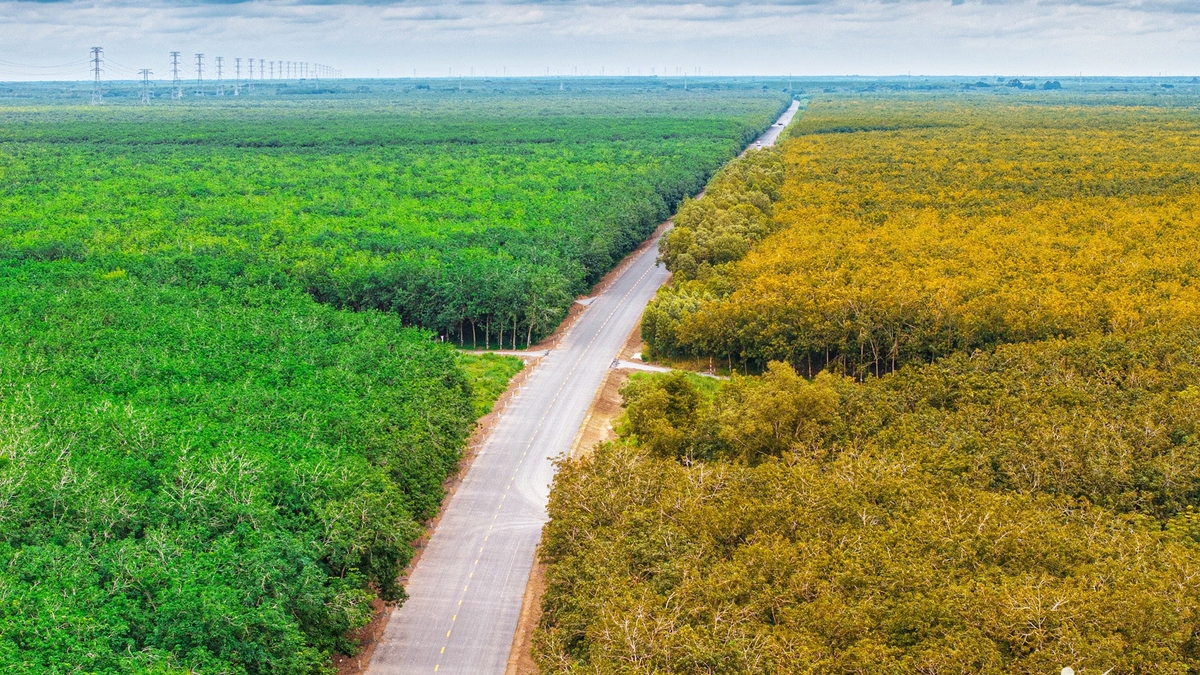

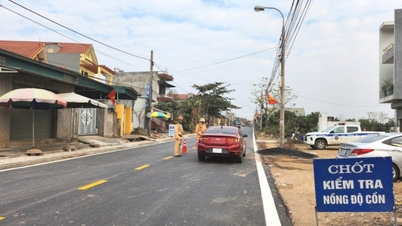

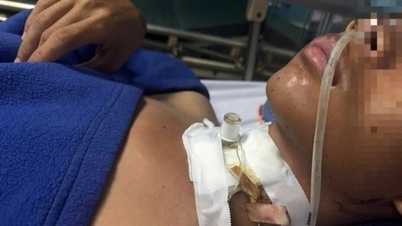






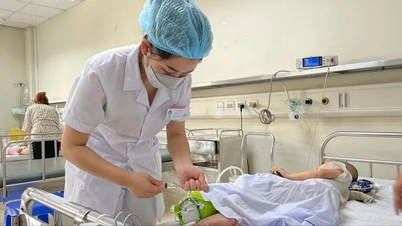


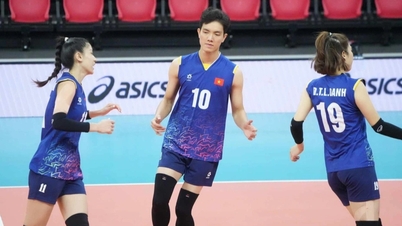
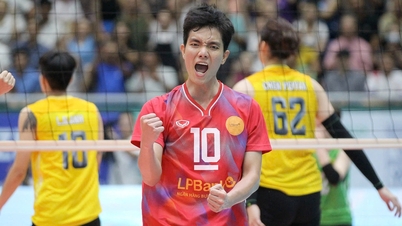

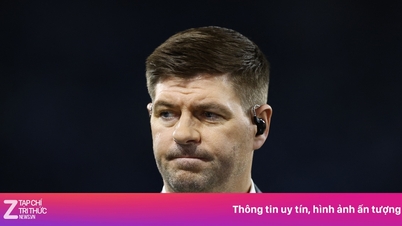






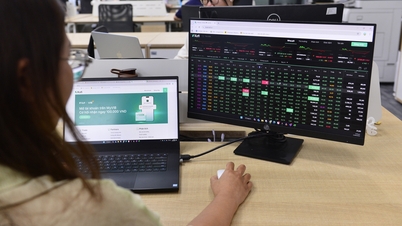
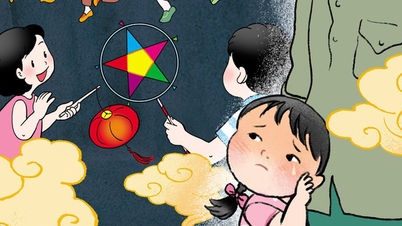

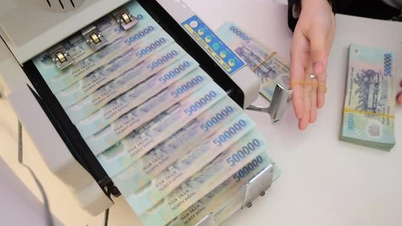

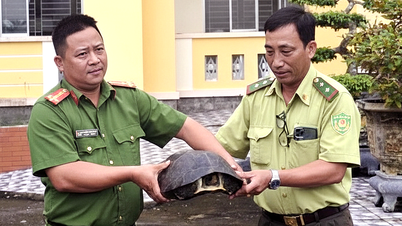













































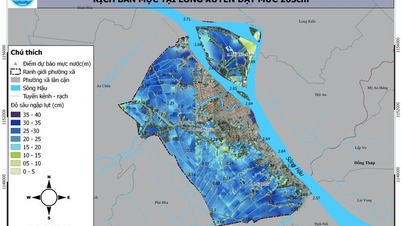




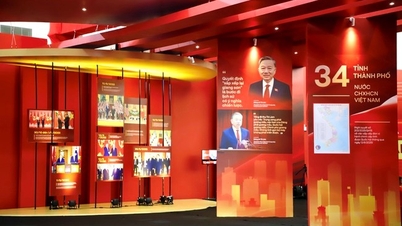















Comment (0)